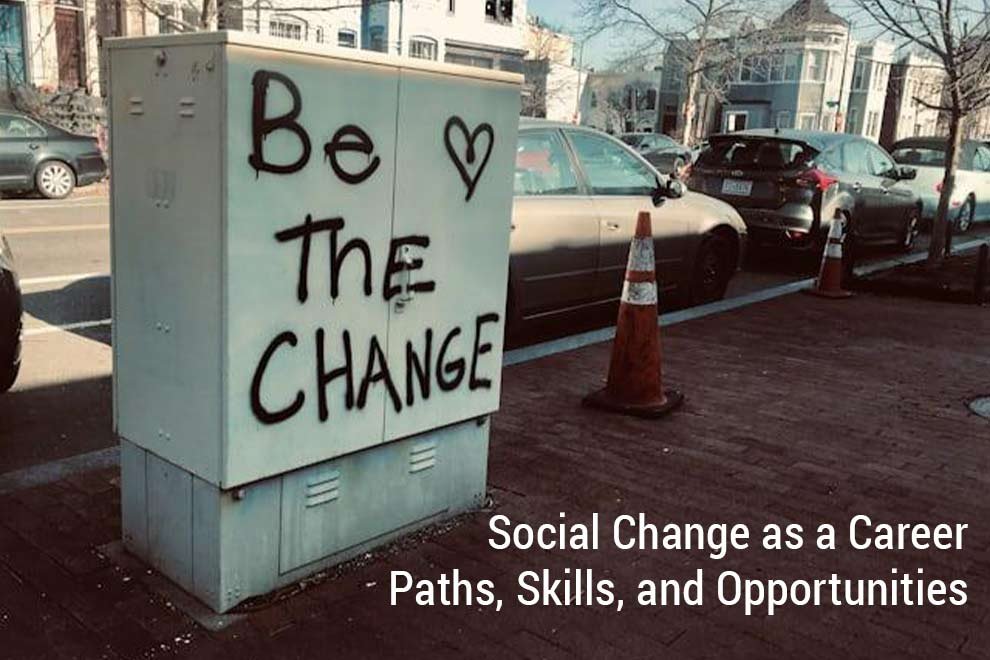The idea of making a meaningful difference in the world is something that resonates with many people. For those who are passionate about addressing societal issues, there are numerous career paths in social change.
From working directly with individuals in need to influencing policy on a national scale, social change careers can be both fulfilling and impactful. If you’re considering a career in this field, it’s important to understand the various paths, the skills required, and the opportunities that exist to make a lasting difference.
Career Paths in Social Change
Social Work and Community Outreach
Social work and community outreach are central to providing direct services to vulnerable populations. Social workers, such as those with a hybrid MSW degree, play a crucial role in improving the lives of individuals and families. Their duties range from providing counseling and support services to connecting people with necessary resources like housing, education, employment, or healthcare.
Community outreach specialists, often working alongside social workers, focus on organizing and engaging communities to address local issues. For those who thrive on direct, one-on-one interactions and want to have a tangible impact on people’s lives, this is a fulfilling path.
Nonprofit and NGO Leadership
Nonprofit organizations (NPOs) and non-governmental organizations (NGOs) are key players in social change, and they need skilled leaders to manage and drive their missions forward. These leaders are responsible for overseeing the day-to-day operations, fundraising efforts, and strategic initiatives that help the organization achieve its goals.
In this role, you’d be in charge of setting the vision and direction of the organization, building relationships with stakeholders, and ensuring sustainable efforts. If you have strong leadership skills, a passion for a particular cause, and enjoy working in a collaborative environment, this role could be an excellent fit.
Public Policy and Advocacy
Those interested in enacting systemic change might consider careers in public policy and advocacy. These roles involve researching, analyzing, and influencing laws and policies that affect large groups of people. Public policy experts work with governments and advocacy organizations to craft policies that can improve society at a macro level.
Advocates, on the other hand, work to ensure that the voices of marginalized groups are heard in the policymaking process. They organize campaigns and engage in public education to shift public opinion and government priorities. A career in public policy and advocacy can lead to significant, long-term change.
Mental Health and Counseling
Mental health is an integral part of social justice. Careers in mental health and counseling help individuals deal with the emotional and psychological aspects of living in an often challenging world.
Therapists, counselors, and psychologists provide essential support to those facing mental health issues, trauma, or stress related to societal challenges. This can include survivors of abuse, refugees, or people in low-income communities. If you are compassionate, patient, and enjoy helping others, a career in mental health might be a natural fit.
Essential Skills for a Career in Social Change
Empathy and Active Listening
The ability to understand and share the feelings of others is fundamental in any social change career. Whether you are working with individuals in need, organizing a community event, or advocating for policy reform, empathy allows you to connect with people and understand their challenges. Active listening—really hearing and comprehending what others are saying—is just as important. This skill helps you respond thoughtfully and provide appropriate support or solutions.
Policy Analysis and Advocacy Skills
If you’re involved in public policy or advocacy, you’ll need strong analytical skills to assess current policies and propose changes. Understanding the intricacies of policy is essential for crafting solutions that are both effective and feasible. Advocacy skills are equally important, as you’ll need to communicate clearly and persuasively to lawmakers, the media, and the public.
Community Engagement and Program Development
Social change often begins at the community level, and professionals in this area need to have strong community engagement and program development skills. Being able to organize people around a shared cause, facilitate meaningful dialogue, and develop programs that address real needs is essential.
Crisis Intervention and Conflict Resolution
Many people involved in social change work are dealing with crises or high-stress situations. Whether you’re a social worker assisting a family in crisis or a community leader helping mediate disputes, crisis intervention and conflict resolution skills are essential. Knowing how to remain calm under pressure, diffuse tense situations, and guide individuals toward resolution can make a big difference in your ability to help.
Change is Good
As the world becomes more interconnected, the need for professionals who are dedicated to making a positive impact continues to grow. Whether through local initiatives, national policies, or global movements, there’s no shortage of opportunities to build a rewarding career that also helps create a better world.
Also Read: Masters in Public Health: 5 In Demand Careers to Consider









